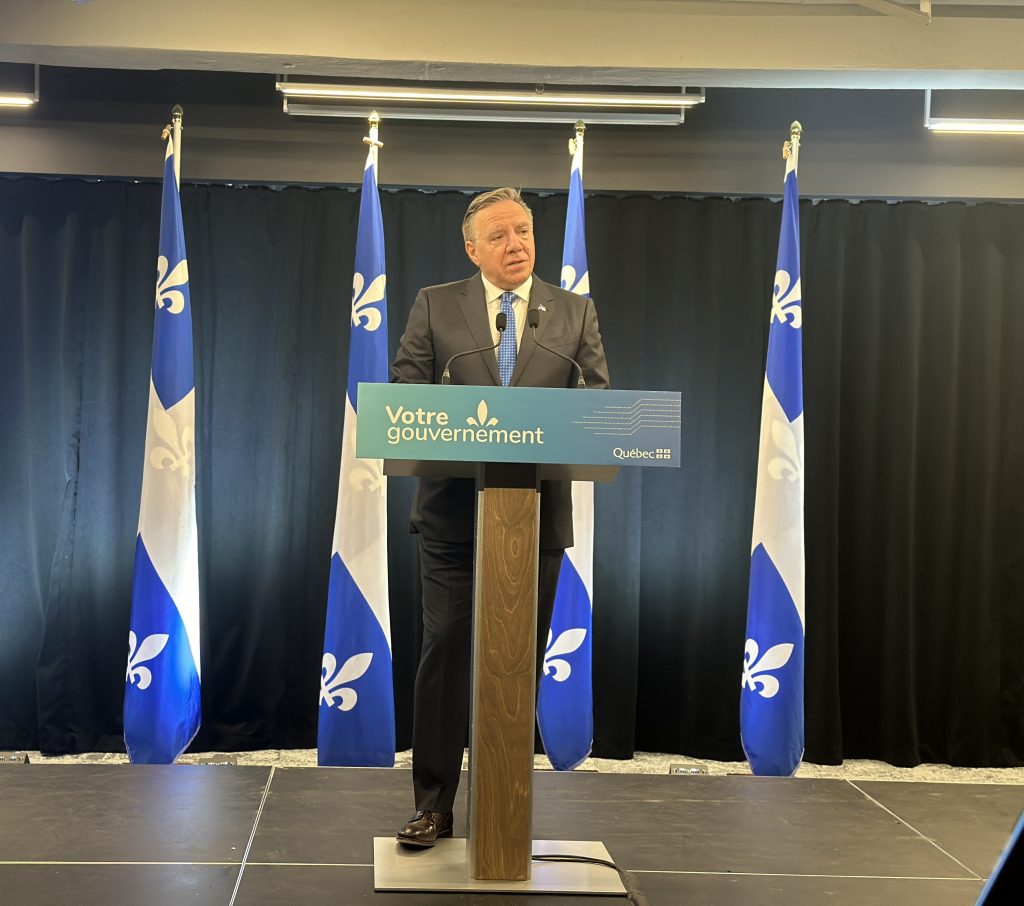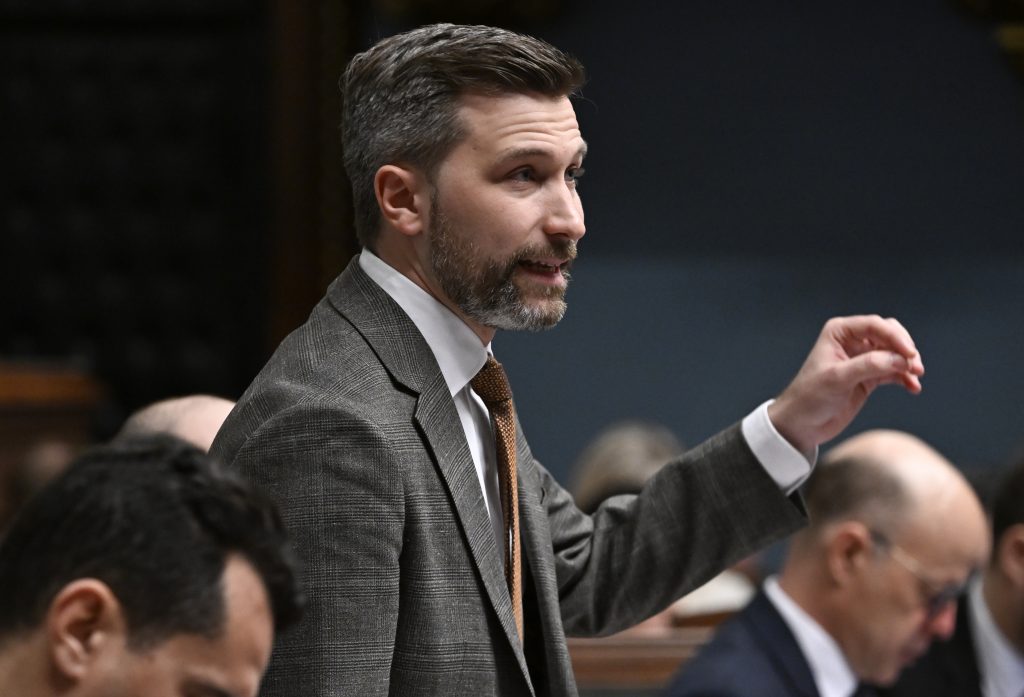Trudeau rejects Quebec premier’s request for full powers over immigration
Posted March 15, 2024 10:06 am.
Last Updated March 15, 2024 6:52 pm.
Prime Minister Justin Trudeau on Friday rejected Quebec’s request for additional powers over immigration, saying the province has more control over newcomers than any other Canadian jurisdiction.
In response, Premier François Legault said Quebec would “study all its options” to quickly reduce the number of asylum seekers and temporary foreign workers in the province, which currently stands at more than 500,000 people.
Trudeau made the comments to reporters after a meeting with Legault at the premier’s request in Montreal. The prime minister’s statement is a rebuke to Legault, who on Thursday said he would use the meeting to ask Trudeau for full control over immigration.
“No, we won’t give more powers over immigration,” Trudeau told reporters. “Quebec already has more power over immigration than any other province, because it’s very important to protect French.”
Trudeau said he is more interested in finding ways of making the system work better rather than discussing jurisdiction.
“It’s not a question of who has control over what. We are here to collaborate, to work together,” he said. “I think that people expect from the situation that our systems will improve, that we will be there to respond to the concerns of Quebecers and all Canadians.”
Shortly after, Legault held a separate news conference, during which he said it was “too soon” to give details on how the province would consider rapidly reducing the number of asylum seekers and temporary foreign workers in Quebec.

“The Quebec people have always been welcoming, but now we have surpassed our capacity,” the premier said.
Quebec already controls the number of economic immigrants to the province, but it shares responsibility with Ottawa over refugees, newcomers who arrive through the family reunification stream, and temporary foreign workers.
“If we want to protect our language, our nation, our identity, our culture, we need to have the powers,” Legault said.
However, despite Trudeau’s refusal, Legault said the prime minister showed a significant amount of “openness” on other matters related to immigration.
“We would like that before the federal government accepts temporary worker to get the approval of the Quebec government first, and Mr. Trudeau said that he was open,” Legault said. “He didn’t say that the agree, but he said that he’s open for discussion.”
Trudeau, he said, agreed to consider imposing more travel visas, like Ottawa recently did on Mexican nationals. As well, the prime minister also said he was open to accelerating the treatment of asylum seeker claims, from 18 months to six months.
“Can we put more people working on that and reduce that to six months?” Legault asked. “I cannot imagine why it takes 18 months.”
Finally, Legault said, the two governments would create a working group to analyze Quebec’s demand for $1 billion in compensation from Ottawa for the money it said it spent on asylum seekers in the past three years.
Legault has said that Quebec has already accepted more than its share of refugee claimants in recent years, and that the province doesn’t have enough teachers, nurses and housing to accept more newcomers than it already does.
“When you talk about healthcare, about education, about housing about protection of French and an increase of 230,000 people in two years, it brings problems,” he said.
But advocates for asylum seekers disagree.

“We see that Quebec society really wins in the long run by investing in these people,” said Melissa Claisse, the communications and advocacy coordinator, of Welcome Collective, working with refugee claimants. “Over 70 per cent of claimants will have their refugee claim approved and will become refugees and permanent residents and a significant number after that will stay here through other immigration means. so these people are our future Quebec and I think it makes sense economically and morally to treat them like that right now.”
Trudeau says that Ottawa has taken action to reduce asylum claims by closing down Roxham Road, which was used as an unofficial crossing for refugee claimants coming into the province through the United States, and by reimposing visa requirements for Mexican nationals. He said the federal government is reviewing the international student program and is willing to discuss limiting temporary workers where needed.
“I am hearing very clearly from Premier Legault and from different Quebecers that they want to see the number of temporary workers go down across Quebec, and we’re there to work hand in hand with Quebec in a collaborative way,” he said, while adding that many industries rely heavily on international workers.
Trudeau recognized that Quebec “has been doing more than its share for a long time” on immigration.
“We’ve seen those numbers increase in such a rapid way that it’s putting pressure on housing, it’s putting pressure on health care systems and education systems,” Trudeau said. “We’re all about rolling up our sleeves and working with the provincial government to solve some of these challenges here in Quebec but right across the country as well.”
Under a Canada-Quebec agreement signed in 1991, Quebec controls the volume of entry of its future permanent residents, economic immigrants, as well as their integration and Francisation. Economic immigration represented 66 per cent of permanent immigration in 2022.
The federal government deals with refugees, family reunification and issues related to citizenship.
The demand for full immigration powers for Quebec has been part of the nationalist program of the Coalition Avenir Québec (CAQ) since 2015, but the party has never succeeded in winning its case.



